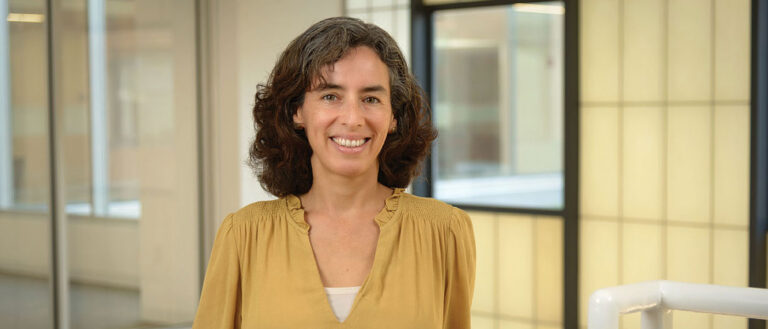Hispanic Heritage Month takes place each year from Sept. 15 through Oct. 15. Throughout the month, The Daily will highlight members of the university community who are of Hispanic heritage to celebrate their accomplishments and shed light on their experiences at CWRU.
At Case Western Reserve, Francisca García-Cobián Richter is known for fostering community—especially through her work as an officer for Alianza Latina/Latino Alliance, a group for Hispanic/Latino faculty and staff at the university. If you ask her where she draws her inspiration, she’ll tell you it stems from her upbringing.
Richter was born and raised in Lima, Peru, during a time when the “ollas communes” emerged as a way to provide meals to the community. The historic “olla común,” or “communal pot,” (otherwise known as a soup kitchen), was a small organization of families from the same neighborhood who ensured daily meals were given to thousands of people across the country. These women-led soup kitchens confronted the country’s extreme poverty caused by terrorism and corruption.
Richter’s experiences with the “ollas communes” in Peru helped define her and fueled a passion to work in community development. After earning degrees in Oklahoma and Louisiana, she began a job at the Federal Reserve Bank of Cleveland as a research economist in community development.
While there, she partnered with a colleague to create the Math Corps Cleveland, a community-oriented academic enrichment and mentoring program for local middle- and high-school students. Through the program, students and volunteers come together to build a caring community that fosters academic excellence for all and advances educational equity in the Cleveland area.
Now the organization’s associate director, Richter has helped expand the program to Cleveland State University and Case Western Reserve University, where she currently works as a research assistant professor at the Jack, Joseph and Morton Mandel School of Applied Social Sciences’ Center on Urban Poverty and Community Development. There, she leverages integrated data systems in order to inform social programs, focusing on the analysis of social interventions and the environments in which they operate. She has worked on projects related to homelessness, evictions and lead exposure, all meant to inform interventions that address extreme housing instability and promote healthy housing.
Along with her enthusiasm for harnessing the power of data analytics to inform social policy comes an increased awareness.
“I am aware of the importance of understanding the biases embedded in both the data and the modeling assumptions, and our need to ensure that the assumptions we make as researchers reflect the realities of those impacted by the social policies we want to inform,” she said.
In line with these goals, Richter has developed a class called Social Data Analysis and Racism: Then and Now, and recently collaborated with colleagues at the Mandel School and Case School of Engineering to launch a Certificate in Data Sciences for Social Impact that will be offered beginning in spring 2022.
In thinking about Hispanic Heritage Month, Richter is most looking forward to María Hammack’s Oct. 12 presentation of the history of the Underground Railroad to Mexico, a little-known history of solidarity shaped by Black and Latinx freedom fighters. Hammack will be introduced by Provost Ben Vinson III, who is a scholar of Latin American history.
Events such as these, which Richter has a hand in planning as a part of Alianza Latina/Latino Alliance, remind her of the power of a common humanity. She believes that by connecting with the “other”—by working together, experiencing art together, and learning together through history and literature—we can fight for social justice.
Learn more about Richter and view the full calendar of Hispanic Heritage Month events.

